Best Village celebrates 60 years of community competition
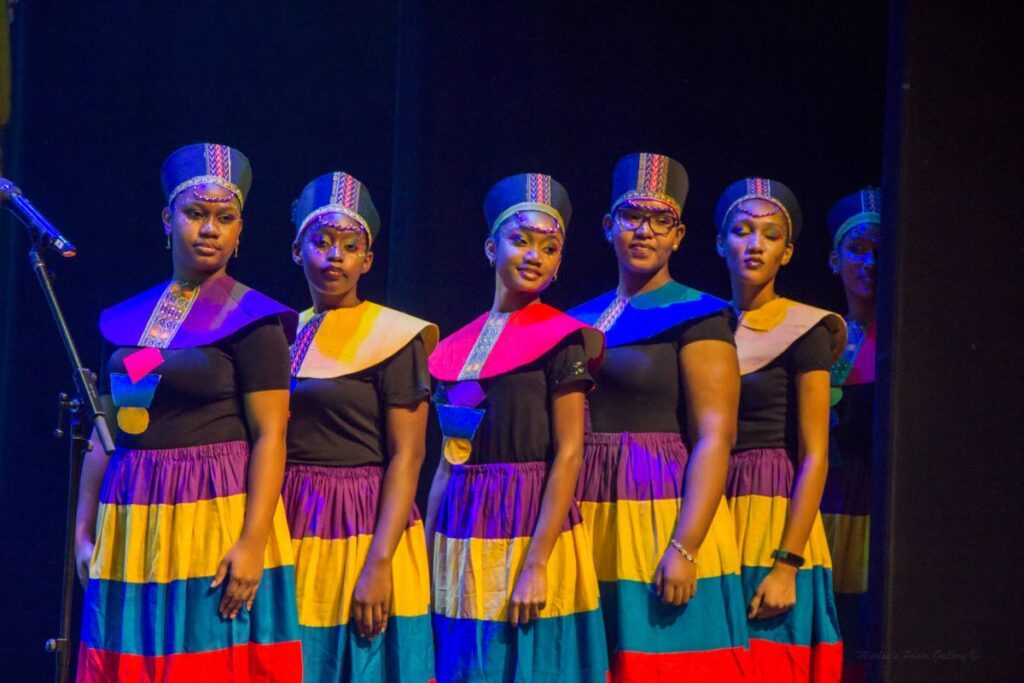
As the Prime Minister’s Best Village Trophy Competition celebrated its 60th year in 2023, it continues to grow and thrive, bringing communities together and exposing participants and audiences to various aspects of TT’s culture.
The programme began in 1963 when then prime minister Dr Eric Williams went on a Meet The People tour around the country following Independence. The villagers greeted with him with entertainment, dance, music, food and craft.
Williams’ sister-in-law Joyce Wong Sang was made coordinator, and the first competition was in handicraft. After the first year, groups performed in four categories – handicraft, music, folk dancing, and literature (also called drama). The music category comprised nine songs, including the National Anthem, and could be instrumental, vocal, or choir. The eight folk dances could be Caribbean, East Indian, Spanish, French or African; and Literature comprised a folk character skit, a Carnival character skit, and a 15 minute one-act play.
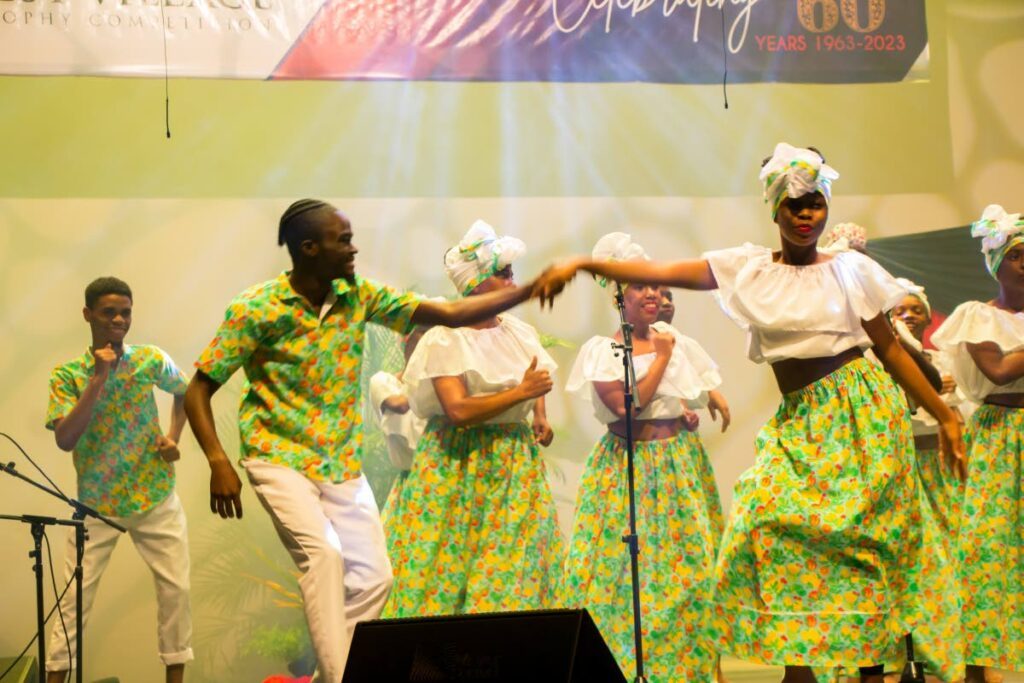
In 2023, the programme involved 27 categories, among them the return of the Village Olympics, folk presentations in song, music, dance, drummology, literature (including short story, poetry, and spoken word), dramatised literature, folk performances, handicraft, Grow It Yourself, and the La Riene Rive competition.
The La Riene Rive competition is a talent competition for women aged 17-27 in the categories of self-expression, talent, and gown display. In the self-expression category, the women talk about their communities and are judged on make-up artistry, hair artistry and gown design. In the talent competition, they showcase their skills in drama, dance or music.
Programme manager Louris Lee Sing said contrary to the beliefs held by the general public, there is a lot of support for the competition.
“Our audiences are good, as the friends and families of the participants turn out to support them. Many families make a day of it, and the last few shows tend to be overwhelmed. We had to turn away over 100 people at the door this year at the finals.”
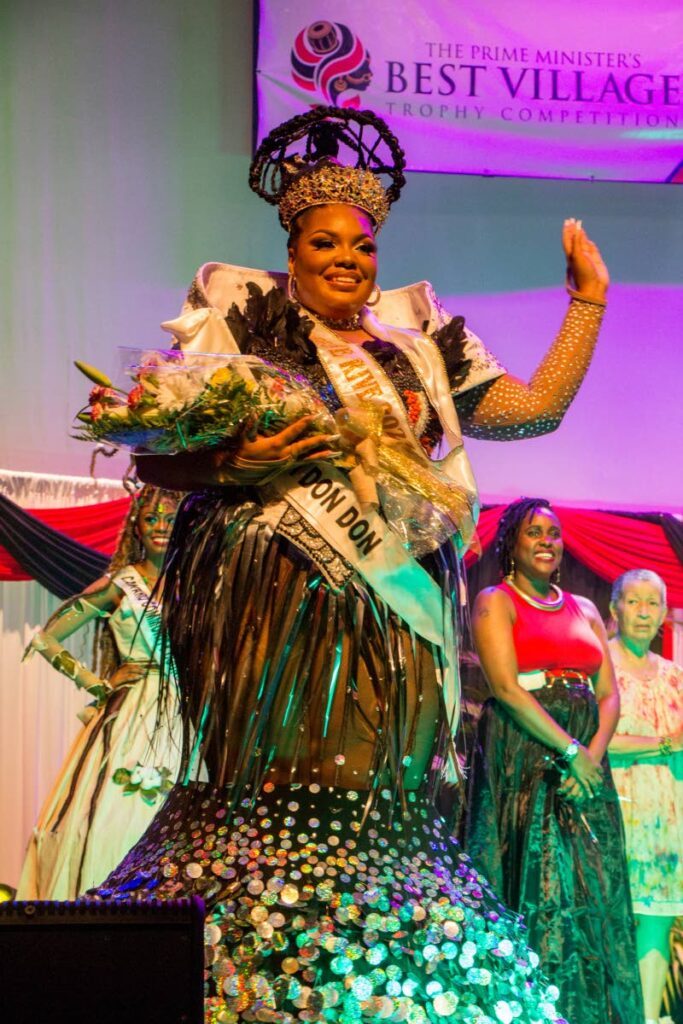
She said there were 196 groups entered in the folk presentation competition and 20 groups in the folk theatre competition. There were 40 preliminary entries in La Riene Rive, with 12 finalists.
Lee Sing said she would like to invest more in training initiatives, grants, and consultations, to formulate a programme that more people want.
“There’s a need for more information and education, for participants and the general public. This is one of the best programmes I’ve seen in my years in theatre and entertainment. It’s sustainable, there’s a delicate balance between development and competition, and it’s healthy feasible competition. The prizes are also a significant sum of money.
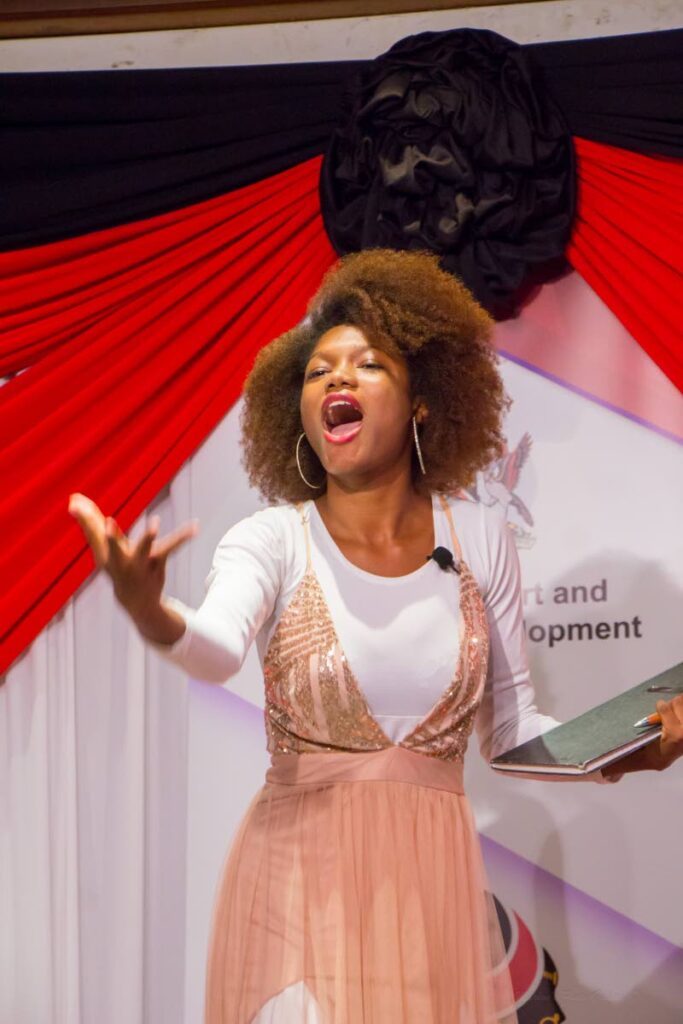
“I would like to see more of the theatre fraternity participating, it would raise the standard of the competition, and lead to more practitioners becoming tutors. We have to support each other.”
Originally, village councils competed against each other, but some eventually split after disagreements, and competitions is now largely between community groups, which draw their participants from the surrounding areas.
Curepe Invaders Performing Company group leader Ricardo Roberts said the company has a core group of performers, with recruitment drives to attract new members taking place throughout the year. He said the programme could be long and tedious, as preliminary rounds begin in April, with final performances being in July and August. He said performances would have to begin months before the preliminary rounds.
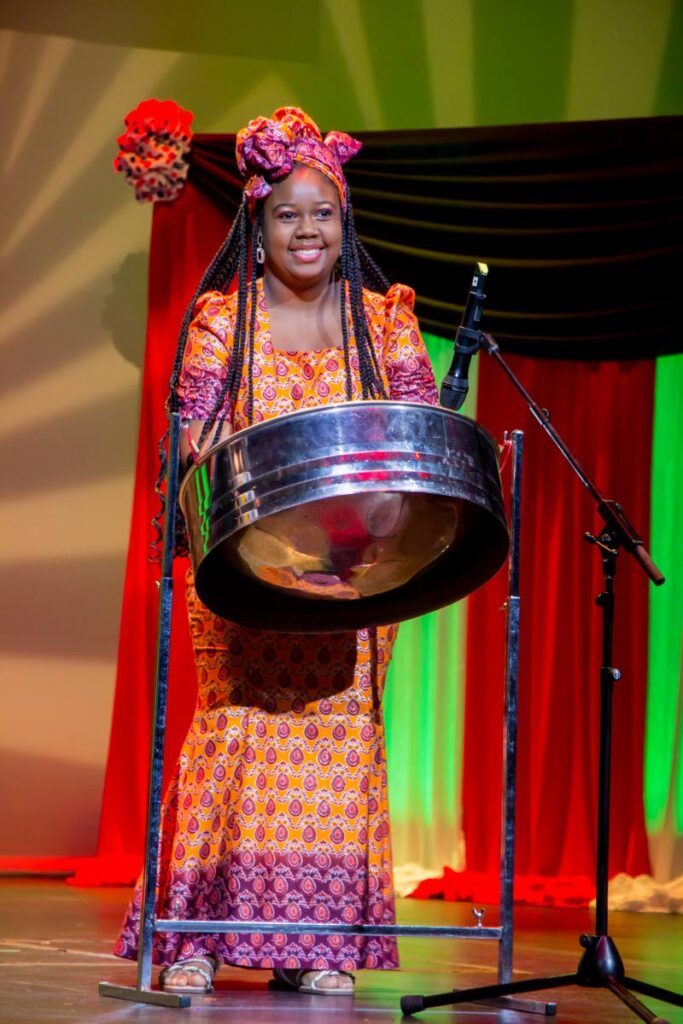
He said some groups are lucky to have scriptwriters within their groups for the dramatic presentations, but some groups would have to hire people to write the script and direct the performers.
Roberts said he had been in Best Village for over 20 years, but formed the company nine years ago to give back to young people, and give them the push he wished he’d received as a young person.
He believes the competition is declining instead of increasing in quality, based on his 20-year experience. He said although the ministry gives guidelines for the different categories, there are sometimes infractions which are not penalised.
“They’re not encouraging you at all, there’s always some problem. The ministry is not planning it properly, they’ll give you a date, and then reschedule, and you might have something else to do that ends up clashing with the competition.
“I don’t think the ministry respects the competitors of Best Village. They think they have the power and could do what they want when they want and we have to just abide with it. Many times we tell them how we feel and things we want changed, and nothing changes. Every year the judges don’t judge fairly, sometimes you see the judges erase the scores and write in new ones and we’re not comfortable with that. The heads make us feel they don’t care. When will they fix that?”
Roberts said the main benefit for groups was experience and bettering their craft, as the prizes were often not enough to cover all the expenses of the group, which includes transport, rehearsals, paying musicians, and giving each person something worthwhile.
He said groups would like to be more involved in the planning phases. He said tutors should be paid more, as the stipend was currently $60 an hour, with tutors conducting 12 three-hour sessions over a period of months.
Dr Lester Efebo Wilkinson, best known for his Best Village theatre play Bitter Cassava, said while he was involved as a ministry official, he was one of the programme’s harshest critics, and thought there should be more focus on building the capacity of the tutors and the participants. He said author Earl Lovelace was also a critic of the programme before joining.
He said Dr Reginal Griffith was integral in integrating the different components into folk theatre. Wilkinson said Griffith’s play, Sincerely Yours, Justina, was the first play to integrate music, dance, and drama, in conjunction with Cumuto Village Council. In 1976, Lovelace, working with Matura Village Council, wrote My Name is Village in 1976, and Wilkinson, working with Mausica Village Council, wrote Bitter Cassava in 1979.
He said in 1981, he and a few others including Ronald Amoroso, Norvan Fullerton, Lenford Simms, Lovelace and Griffith got together to try to figure out how to get the Best Village organisation to treat with the plays more seriously.
“We came up with a style of theatre I call Best Village theatre. It’s classic TT, and harks back to things (historian) Errol Hill has been saying. We wrote a memo to Joyce Wong Sang which was totally ignored.”
Wilkinson said in 1987, then arts director Dexter Lyndersay introduced the folk theatre category to Best Village.
He said the quality of the competition has increased over the years, and the shortcomings with the theatre component were not the fault of the groups but because there was no structure for plays to undergo serious dramaturgy before they hit the stage. He said the quality of the tutors had also increased because people who had studied music, drama and dance at university were now becoming tutors.
“I don’t think we’ve recognised the value of Best Village theatre and how much we need to enhance it as a form unique to TT and the Caribbean. We can’t be carbon copies of anywhere, we need to work on being our original selves.”
Former Best Village officer Trevor Pantin said the vision of the programme was to discover hidden, grass-roots-oriented talent, and develop it. He said there had been many people who had begun their careers in Best Village and done great things internationally, such as Machel Montano, Patrice Roberts, Peter London, Gregor Breedy, and Rhoma Spencer.
“Culture is bigger than a barrel of oil where prices rise and fall. The people carry it. Culture is art. If you believe the administration or people in the society isn’t doing things right, you can express it in the art form. We believe the ordinary people, like the garbage man, are important, and we have to respect the small man. Not everyone is going to have a doctorate or A’Levels, but God gave everybody a talent, and the ordinary man is very creative.
“We have talent and we need to recognise it for ourselves, instead of waiting for someone outside to give us a Grammy.”
Pantin advocates for better prizes, proper contracts, a Best Village Hall of Fame, and for it to be shown on TV so that people can see themselves represented.
Sport and Community Development Minister Shamfa Cudjoe-Lewis said the fact that the Best Village programme had lasted 60 years reaffirmed TT’s unwavering dedication to honouring and safeguarding the profound tapestry of its cultural legacy.
“The year 2023 unfolded as a resplendent showcase, vividly illustrating the expansive breadth of our cultural heritage and providing an exuberant stage for diverse talents and age groups to partake in a myriad of categories.”
She said the programme is transformative and engages communities on multiple fronts, weaving threads of cultural pride and unity, acting as a catalyst for economic development, and contributing to social cohesion.
Cudjoe-Lewis said she would like to see more solid partnership and intervention in schools, with groups being key stakeholders in enriching the curriculum in schools through their respective communities.
“We should be enhancing performance and delivery of our new Grow it Yourself initiative which promotes home gardening toward family and community food security. Also, more activities could be championed by the groups throughout the year, providing more opportunities for income generation and more awareness of the programme.”
Cudjoe-Lewis said an average of $6 million is allocated annually for the execution of the programme. She said the 2024 theme will be The Future is Folk.
“The government is brimming with enthusiasm for the forthcoming year's potential for growth and positive impact. The outlined objectives, centering around collaboration, strategic partnerships, and youth engagement, seamlessly align with our overarching goal of preserving our cultural heritage. Simultaneously, we aim to leverage this heritage for the holistic development of our communities.”

Comments
"Best Village celebrates 60 years of community competition"